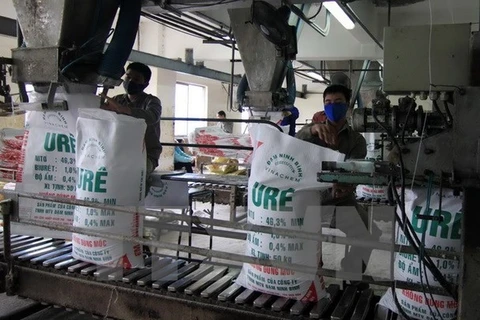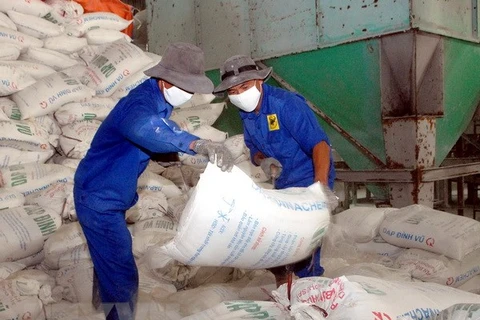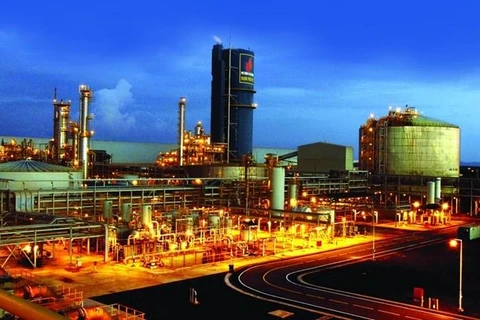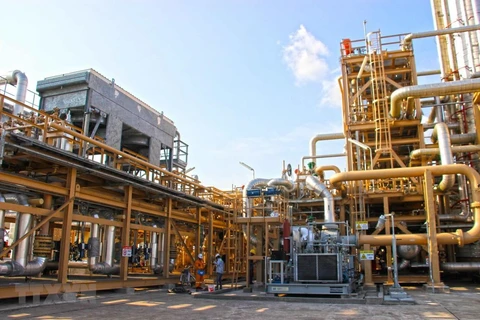 PM Pham Minh Chinh (gray shirt) makes an inspection tour of the Ha Bac Fertiliser Plant (Photo: VNA)
PM Pham Minh Chinh (gray shirt) makes an inspection tour of the Ha Bac Fertiliser Plant (Photo: VNA) During his inspection tour of the plant in the northern province of Bac Giang, PM Chinh requested greater efforts to complete the restructuring of the plant in August this year under the instruction of the Government.
He emphasised the need to closely following the direction of the Politburo in the process of restructuring in order to ensure suitability, feasibility and effectiveness, thus serving the national agricultural development.
The restructuring should be implemented in the direction of diversifying products; improving labour productivity; and renovating production processes, towards building a green, clean, and sustainable factory and ensuring jobs and incomes for its employees, he stressed.
Apart from participating in handling arising problems, the provincial authorities must regularly perform its inspection and supervision tasks in order to ensure that the handling of difficulties and obstacles is feasible and effective, he said.
The project to upgrade and expand the Ha Bac Fertiliser Plant aimed to raise its annual capacity to 500,000 tonnes from 180,000 tonnes.
Invested by the Ha Bac Fertiliser Ltd, Co., the project had a total investment of 568.6 million USD and uses modern technologies to protect the environment and save energy.
However, after it was put into operation seven years ago, many problems have arisen in recent years, especially those related to the environment and finance.
Representatives from relevant ministries and agencies attributed the weaknesses in the project to the fact that the project development was not closely based on reality, failing to evaluate the capital structure, debt payment, and loan interest rate, resulting in huge financial costs./.
VNA
























